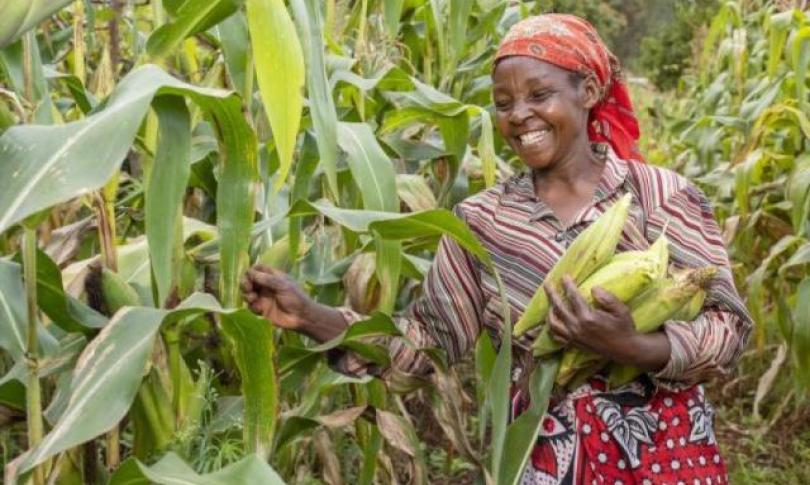
Women contribute about 70% of Ghana’s agricultural production, marketing and processing, yet they face diverse challenges. With the ongoing pandemic affecting every sphere of life, the woes of women in agriculture are deepening in addition to the existing challenges.
In Ghana, gender inequalities in agricultural work exist in land possession, access to seedlings, modern inputs, seeds, training and education, financial and extension services, and more. These discrepancies hinder the productivity and earnings of Ghanaian women in agriculture.
Available literature by the Ghana statistical service shows that during the 1st and 2nd waves of the pandemic, 2 out of every 100 persons in Ghana as of June 2020 were either severely or moderately food insecure. These people are aged between 15 years and older, and are forced to reduce the number of meals taken in a day due to scarcity of food and money. The report also indicated that 1 out of every 10 people suffers severe food insecurity in households across the country.
“Some 47.7% of the population in Ghana as of June 2020 was affected by moderate or severe food insecurity. This corresponds to individuals living in households where at least one individual aged 15 or more was very likely forced, at times during the 30-day lockdown period, to reduce the quality of their diet, due to lack of money or other resources. This figure includes 9.5% estimated to be affected by severe food insecurity”.
Although there were regional disparities of food insecurity, the biggest decline in access to food in estimated food insecurity was observed in Northern Region, one of the largest staple foods producers of the country.
Farmer group, Agrisolve Ghana, with a women workforce of about 10,000 in production, processing and marketing of maize and soya beans across the five Northern regions, says the impact of the pandemic is so evidenced in this year’s farming season. As a result, there is decline in production mainly due to difficulties in accessing finance from institutions as they are skeptical about financing agribusiness as a result of the pandemic.
According to an Agrisolve Ghana official, “Access to credit is critical to every sector, and so as it is for agribusinesses. So with COVID affecting everything financial firms are reluctant in funding for our activities. This year, things are really tough for us”
Additionally, the astronomical increment in prices of farm inputs – fertilizer and pesticides, among others, tripled causing hikes in production costs, the official said.
Elorm Goh, Executive Director of Agrisolve, said not only did the pandemic affect production but transportation and hauling of the produce to various markets was badly affected thereby pushing demand for food items.
“We rely mostly on trucks from Burkina-Faso to transport the goods from the North to the South, but the restriction, and closure of the borders is affecting the movement of trucks from the North to the South. The bad nature of the roads in the North is affecting transportation of the wares to the various markets in the South,” Goh said.
“We at Agrisolve produce about 10,000 metric tons of maize annually but if we produce this much and we don’t have the means of storage, couple with the challenge of bad roads when transporting it to the markets it has a direct bearing on food prices,” she stated.
Ghana imports 98 per cent of her farm inputs, hence during the pandemic when COVID restrictions were in full force (and as is still the case in some countries), demand for inputs went higher reflecting on prices in the markets.
Kojo Queyson is a middle man who owns and retails fertilizer and agro-chemicals at Assin Fosu a suburb of Central Region. He said the 25 kilos fertilizer cost 53 cedis last year with government subsidy but that this year, there is no subsidy from government due to non-payment and liquidity issues. As a result, open-market sales stand at 192 cedis while retail price stand at 110 cedis.
Clearly, there is an increment of 100 percent in fertilizer price in less than 12 month and this is having dire consequence on food prices in general, he maintained.
Adjoa Arhin, a farmer at Abura – Aseibu, says aside the climate change issues, the pandemic affected the timely provision of farm inputs and the seeds to farmers. “Because government’s interventions of farm inputs delays, we could not plant within the stipulated time to get the right results. Food prices had gone up this year and there is no money to buy them as well,” Arhin explained.
Ernest Teye of the department of Agricultural Engineering, University of Cape Coast, says the pandemic has and is continually hitting hard on many smallholder farmers who are mostly women because storage as part a food chain channel has been affected resulting in panic buying.
“Storage facility as a part of the food chain has been challenged and for many decades nothing is being done about it. The result is the post -harvest loses we see annually. There is no means to haul proceeds and we are not doing processing as we ought to. So, during the restriction there was panic buying for the little available food items shoring up prices,” Teye laments.
In our part of the world, we have little regards for research, talk less of implementing its findings. Even though we saw an opportunity as well as a limitation, many Ghanaians could not take advantage of it,” he bemoaned.
This suggests that locally made dried foods like cassava floor, flakes and other food items can be preserved with the available sunlight for emergency situation so as not to hit the food insecurity threshold.
